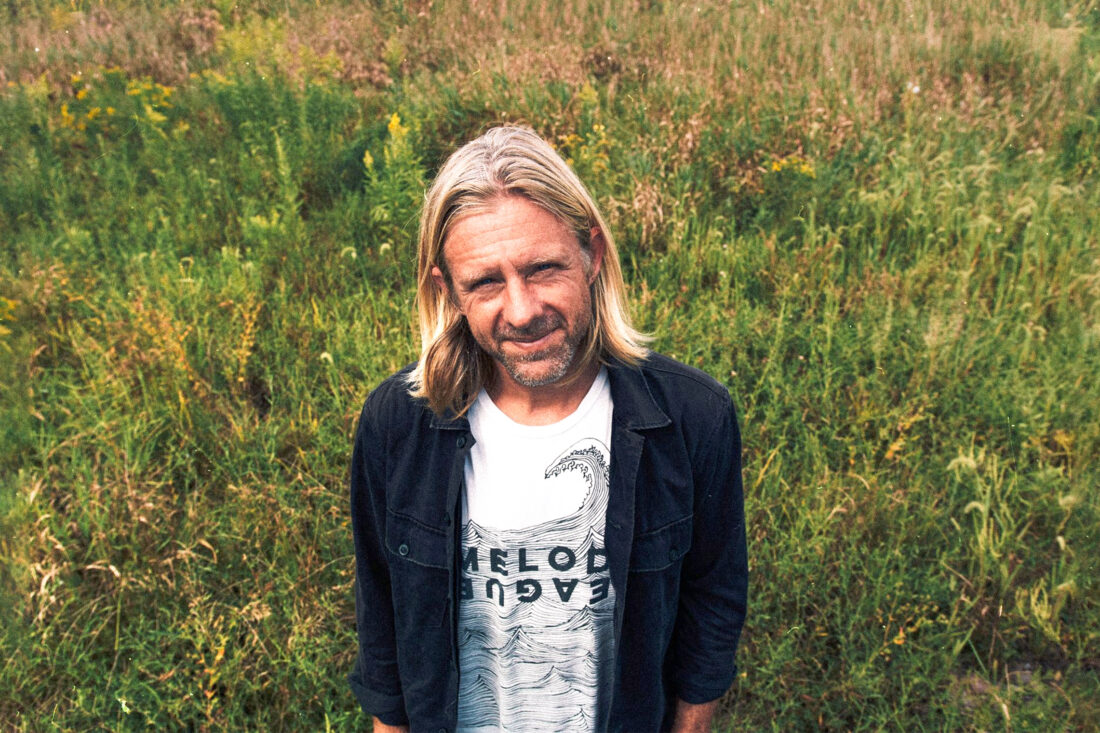
Jon Foreman has always seemed like someone mid-stride — not just walking, but chasing, surfing, stumbling, standing back up, scribbling lines on a hotel napkin, then tossing it aside because he’s already onto the next thing. The Switchfoot frontman has built a career on songs that feel like open windows rather than declarations, which makes sense once you hear him talk about change. To him, change isn’t a disruption. It’s the rhythm section.
“I’m a ruthless idealist who’s always expecting the best to happen,” he says. And he means it. Foreman talks about hope the way other musicians talk about tunings — something natural, intuitive, automatic. But idealism has its shadow side. “When I let myself down or let other people down, or when someone lets me down, it can be a shock,” he admits. “‘You’re human? Are you kidding me?’”
That tension — between optimism and the crash of reality — threads through his latest album. He points to “Eulogy,” where he sings about writing daily funeral notices for who he used to be.
“Every day I write the eulogy for everything I used to be,” he sings. The line isn’t morbid; it’s strangely hopeful. The way he describes it, every past version of yourself becomes compost. Fertilizer for whatever you might grow into next. “I am the broken, shattered mosaic of a man who is still becoming,” he says. “Still unfolding, forgiving, and being forgiven.”
Foreman has never been particularly interested in fixed answers, which is partly why listeners outside Christian music’s walls have gravitated toward him for two decades. He was raised in church — a pastor’s kid with the hymns, youth group jokes and spiritual pressure that come with the territory — but he’s allergic to neat categories. Ask him whether being a PK helped or hurt, and he refuses the binary altogether. It’s classic Foreman: gentle, philosophical, annoyingly reasonable.
“When I think of the Church, I think of a bunch of people that are yearning for meaning, for purpose, for hope,” he says. Not institutions. Not marketing demographics. People. Messy, complicated individuals. The kind you still love even when they show up to the family reunion with conspiracy theories and potato salad. “As crazy as some of the people are within your family, it’s still your uncle,” he laughs. “That’s your aunt. She’s nuts and she’s great. That’s your family. That’s what the Church is.”
The affection is real, but not blind. Foreman knows the knee-jerk reaction many millennials and Gen Z Christians have — the instinct to put distance between themselves and the worst parts of the institution. He’s felt it too. But he’s learned to sit in the tension rather than run away from it. “There’s someone looking at me and saying, ‘That guy is just an idiot,’ but I’ve got to love him anyway,” he says. It’s not resignation; it’s liberation. The Church, for Foreman, isn’t a box to escape from or a club to belong to — it’s a family to grow up in, flaws and all.
Growth, in fact, might be the closest thing Foreman has to a spiritual north star. He doesn’t believe calling is a destination or a brand slogan or a perfect-fit career path. He thinks it’s situational, alive, immediate — “much more to do with the moment you’re in,” as he puts it. If you’re the first person on the scene of a car accident, your calling is suddenly triage. If a friend learns her mother has died, your calling is to sit with her in the quiet. Calling isn’t discovered; it interrupts.
Music, of course, has been an interruption that stuck. “Even when I was a kid I loved music. Music and surfing,” he says. His early songwriting obsessions were simple — roommates, heartbreak, the angst and hilarity of 20-something life. Now the palette is bigger, the brushstrokes looser. The throughline is curiosity, not certainty. “I think calling has got to change from time to time,” he says. “If we think we’ve arrived, we’ll be very let down by ourselves and by others.”
Foreman’s spiritual posture — if you can call it that — is something between humility and improvisation. It’s also why he keeps returning to practices that force him into the present. Meditation. Prayer. Putting his phone down. Surfing. Anything that quiets the noise long enough for a human heartbeat to make itself known.
“Surfing, songwriting and playing music are all things that bring me back to the present,” he says. When you’re in the water, you don’t have time to obsess over your last mistake. When you’re mid-lyric, you don’t have the luxury of thinking about the last draft. Life moves. You respond. You fall off the board. You get back on. You find your melody again.
Phones complicate things, though. Foreman is fully aware of the irony of talking about presence while holding a device that fractures it. “It brings us around the world, fragmenting us away from not only the moment but this particular location,” he says. Somewhere between a confession and a resolution, he laughs and says he might need to lock it away for a few hours. It’s both self-aware and completely earnest — classic Foreman again.
Maybe that’s why he still resonates so deeply with people who live inside and outside the Christian world. He’s not trying to perform faith or reject it or package it for a specific audience. He isn’t playing inside the Christian box, but he’s not interested in burning it down either. He just keeps showing up — curious, idealistic, hopeful, flawed, honest.
And still becoming.
© 2025 RELEVANT Media Group, Inc. All Rights Reserved.
